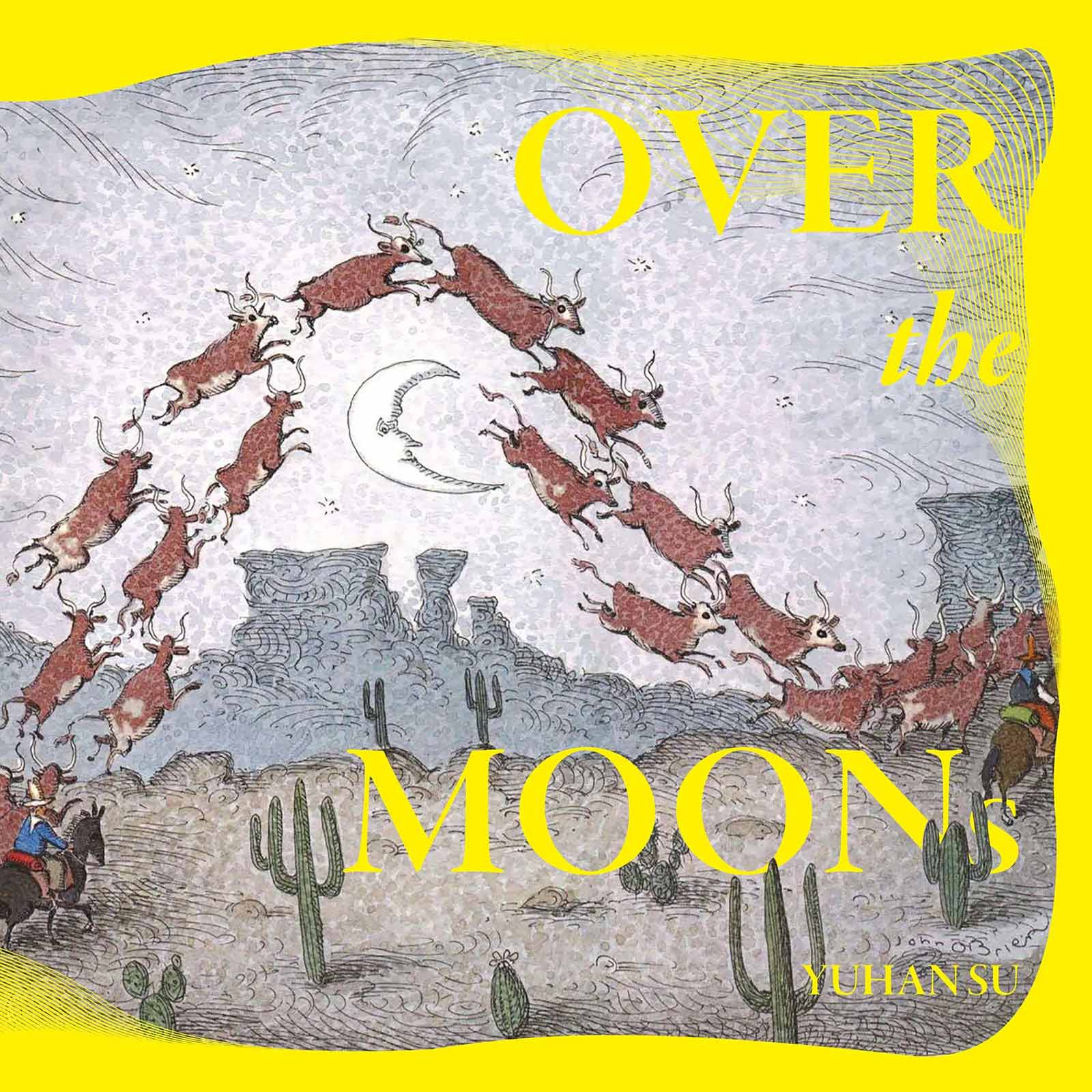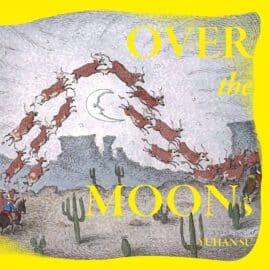| Jazz |

Between Two Moons: Yuhan Su and the Art of Restless Balance
There are albums that unfold like journeys, with a clear path, a discernible horizon. And there are others, more elusive, more ambiguous, that feel like wandering through a dream whose geography keeps shifting. Yuhan Su’s Over the Moons belongs firmly to the latter category. It is a conceptual album that resists being easily followed, one that demands attention yet defies comprehension, as if designed to blur the lines between discipline and abandon.
Unlike a more radical contemporary such as Sakoto Fuji, who fully abandons structure in favor of pure experimentation, Su keeps one foot planted in the soil of improvised jazz. Her music, though exploratory, never disowns the form that sustains it. On the vibraphone, she remains faithful to a classical conception of the instrument, no wild departures, no attempts to reinvent its physical vocabulary. Yet that choice has its risks. Since the arrival of Sasha Berliner, who redefined what the vibraphone could sound and feel like, listeners have grown accustomed to a kind of disruption. Su, in contrast, finds her edge not in timbre but in thought. The seduction here lies in composition rather than execution.
Recently awarded the title of Best Instrumental Composer at Taiwan’s Golden Melody Awards, and the recipient of numerous Golden Indie Music Awards, Su stands as one of the most compelling creative figures in contemporary jazz composition. Her music draws, sometimes unexpectedly, from blues and rock idioms, brushes against bebop, and often drifts into what could be called “intellectual navigation”: music that thinks as much as it feels. Yet amid these flashes of brilliance, the album occasionally loses its thread. What it lacks, perhaps, is a spine, a continuous narrative line that would allow the listener to follow the argument from beginning to end.
The conceptual backbone of Over the Moons stems from Su’s exploration of double consciousness, the psychological and cultural dissonance of living between languages, between geographies, between selves. “I always feel as if there are two moons in my head, each exerting its own pull,” Su explains. “I want to embrace that feeling, beautiful, chaotic, and express it through musical layering.”
The metaphor is arresting. It situates the album not merely as a collection of compositions, but as an interior dialogue between belonging and estrangement, stability and drift.
This deeply personal idea took shape during Su’s artist residency at the Ucross Foundation in Wyoming in 2024, a period she describes as both isolating and transformative. There, surrounded by the vastness of the American West, she began weaving her own experience of cultural duality into sound. The result is an album that feels both meticulously structured and constantly dissolving, like a sand painting brushed by the wind.
And yet, for all its intellectual ambition, Over the Moons is not an easy listen. Where many concept albums guide their audience along a clear emotional or thematic path, Su’s approach is centrifugal. The music expands outward rather than inward. It resists closure, coherence, and comfort. After several tracks, one begins to feel dizzy, not from excess volume or rhythm, but from the absence of direction. The record’s patchwork nature, its refusal to settle into a single tone or style, leaves the listener oscillating between fascination and fatigue. One ends up alone, figuratively speaking, in the bleachers of a vast concert hall, watching a spectacle whose meaning remains just out of reach.
This sensation is not new in the avant-garde tradition. In Europe during the 1970s and ’80s, similar sensory experiments unfolded in theaters and contemporary music halls, places where sound was less an aesthetic object than an experience of perception itself. Su’s work seems to belong to that lineage. Heard live, her music might very well cohere through the physical vibration of sound, the visual presence of the performer, the shared energy of the room. On record, however, it sometimes feels like an artifact of something that ought to be lived rather than merely heard.
Still, Over the Moons represents a bold evolution for Su. Where her earlier albums leaned toward narrative and melodic clarity, this one opens a wider field of play. She toys with counterpoint, harmonic layering, rhythmic asymmetry, and coloristic shifts. The album also reveals her unique command of the vibraphone, amplified through a custom system of microphones and effect pedals that enable distortion, transposition, and bending. This expansion of the instrument’s expressive range situates Su among a small cadre of artists who view the vibraphone not as a relic of cool jazz, but as a modern voice capable of transformation.
At its best, Over the Moons captures that moment when sound becomes thought, when composition transcends genre and becomes self-examination. At its weakest, it risks losing the listener in its own intricacy. But perhaps that is the point. The album is a mirror of duality: disciplined yet unanchored, structured yet fluid, intellectual yet yearning.
To listen to Yuhan Su’s latest work is to step into a conversation between two selves, one tethered to tradition, the other restless to escape it. Whether the dialogue resolves or not is beside the point. The beauty lies in the attempt, in the flicker between the two moons she describes.
And maybe that’s where this album truly lives: not on the page, not in the studio, but in the moment of performance, where music ceases to explain itself and simply, luminously, exists.
Thierry De Clemensat
Member at Jazz Journalists Association
USA correspondent for Paris-Move and ABS magazine
Editor in chief – Bayou Blue Radio, Bayou Blue News
PARIS-MOVE, November 10th 2025
Follow PARIS-MOVE on X
::::::::::::::::::::::::
Musicians:
Yuhan Su – Vibraphone
Alex LoRe – Alto Saxophone / Flute (Tracks 3, 8)
Anna Webber – Tenor Saxophone / Flute (Tracks 3, 8)
Matt Mitchell – Piano
Yingda Chen – Guitar
Marty Kenney – Acoustic Bass. Electric Bass
James Paul Nadien – Drums
Shinya Lin – Electronics (except 4, 8)
Track Listing :
Pieces Peace
Tomorrow
Two Moons
Roaring Hours
Olfactory Memory
Genius and Dumb
Double Consciousness
Too Much Time Matching Clouds
Recorded at Bunker Studio, Brooklyn, NY (September 15th, 2024)
Recording Engineer: Aaron Nevezie. Alex Conroy
Mixing: Aaron Nevezie
Mastering : Alex DeTurk
Producer: Yuhan Su
Cover Art: John O’Brien
Album Design: Iat Huân Tiunn
Photography: Kuo-Heng Huang
All compositions by Yuhan Su

